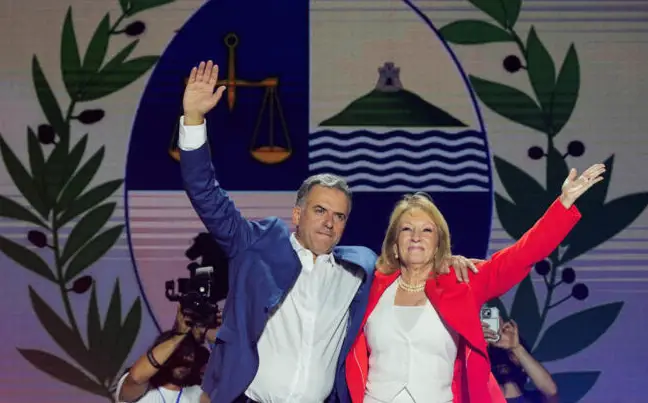After a scenario that predicted a technical tie, last Sunday, November 24, Uruguayans elected their new President. Yamandú Orsi of the Broad Front won with 49.8% against his opponent’s 45.8%, nationalist Álvaro Delgado. Thus, the country ended the day knowing its President ahead of schedule, with Delgado assuming defeat and Luis Lacalle Pou immediately congratulating his successor and inviting him to work on an “orderly transition”. All signs that Uruguayan democracy is in good health. Once the victory of the Yamandú Orsi and Carolina Cosse has been declared, Uruguay is once again looking to the left, in a turn that is far from being radical regarding what was achieved by the center-right administration of the nationalist Lacalle Pou. Unlike the shifts occurring in many of the countries of the region, the change of political sign in Uruguay seeks to generate consensus among all political actors. In his first speech, Orsi reiterated that he would be the President who “calls again and again for national dialogue”.
However, the country model that Orsi intends to lead is far from the continuity proposal to which his opponent was betting on. The programmatic bases of the Broad Front are betting on focusing on the popular sectors, the most dissatisfied with the liberal transformations of the outgoing administration. The new government will advocate combating inequalities and reinforcing the role of the state as guarantor of fundamental rights, as well as combating the escalation of violence that threatens the control of public security. This last point, although it is the most heated area of discussion, is not a problem inherited from Lacalle Pou’s predecessors, but rather a problem inherited from his predecessors.
The mea culpa of the Republican Coalition: excess of confidence?
Although Delgado bet on the renewal of the Republican Coalition, led by the National Party and supported by the leaders of the Colorado, Independent, Cabildo Abierto and Constitutional Environmentalist parties, the efforts were not enough to retain voters. Although the linear sum of the votes of the coalitionist parties in the first round was almost 4% higher than those obtained by the Broad Front, the electoral behavior of Uruguayans showed that, even with little volatility, it always tends to vary.
In a resounding interview, the former Colorado candidate, Andres Ojeda, claimed that the flight of votes from his party to the left was a mere story, not a reality. And although it is difficult to know from where the more than 120,000 votes won by the Broad Front between both elections migrated, it is evident that the Coalition did not fulfill the objective of retaining votes.
Since the implementation of the second round of elections with the Constitutional reform of 1997, Uruguay has had to resort to this system five times, and the three main political actors have emerged victorious: Colorado Party (1999), Broad Front (2009, 2014 and 2024) and National Party, inaugurating the Coalition (2019). In all these elections, Broad Front participated on one of the sides and, between both rounds, increased its vote share between 4 and 9%.
Parliament back in the hands of a woman
Just as the Executive Tower will have a new tenant, the current Vice President Beatriz Argimón will hand over the keys of the Senate to the new Vice President, Carolina Cosse. While Orsi focused her political career on departmental administration, Cosse’s resume has several sections of relevance. By virtue of her technical profile, this engineer held numerous positions in the Executive during the presidencies of Mujica and Vázquez, first as President of the National Telecommunications Administration and then as Minister of Industry, Energy, and Mining. However, her experience in the Legislative is relatively scarce, taking office as Senator in February 2020 and resigning at the end of that same year after being elected Mayor of Montevideo.
In a way, Cosse has the governability of the Senate assured, since Broad Front has the majority in that Chamber, something that Argimón did not enjoy during his Legislature. Even so, the vice presidency is undoubtedly an area where agreements must be reconciled, so Cosse’s main challenge will be to establish order, practice negotiation and try to listen.
In this way, Uruguay has reached an exceptional culmination of another civic instance, being a beacon of hope in a continent as diverse as it is unequal. The slightly undulating prairie is once again an international example of coexistence and, above all, of democracy. Lacalle Pou and Argimón are handing over to Orsi-Cosse a functioning country, a citizenry that trusts its institutions and the hope of a better future. In 2030, the next government will be evaluated. For the moment, we continue to admire the country’s political traditions.
*Machine translation proofread by Janaína da Silva













